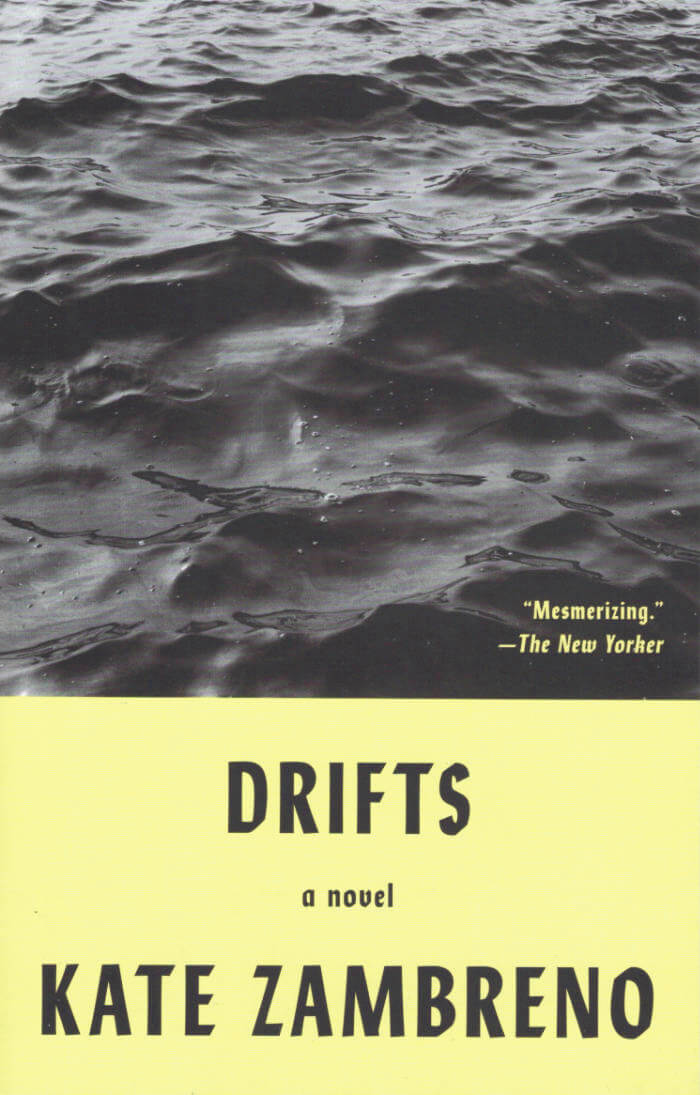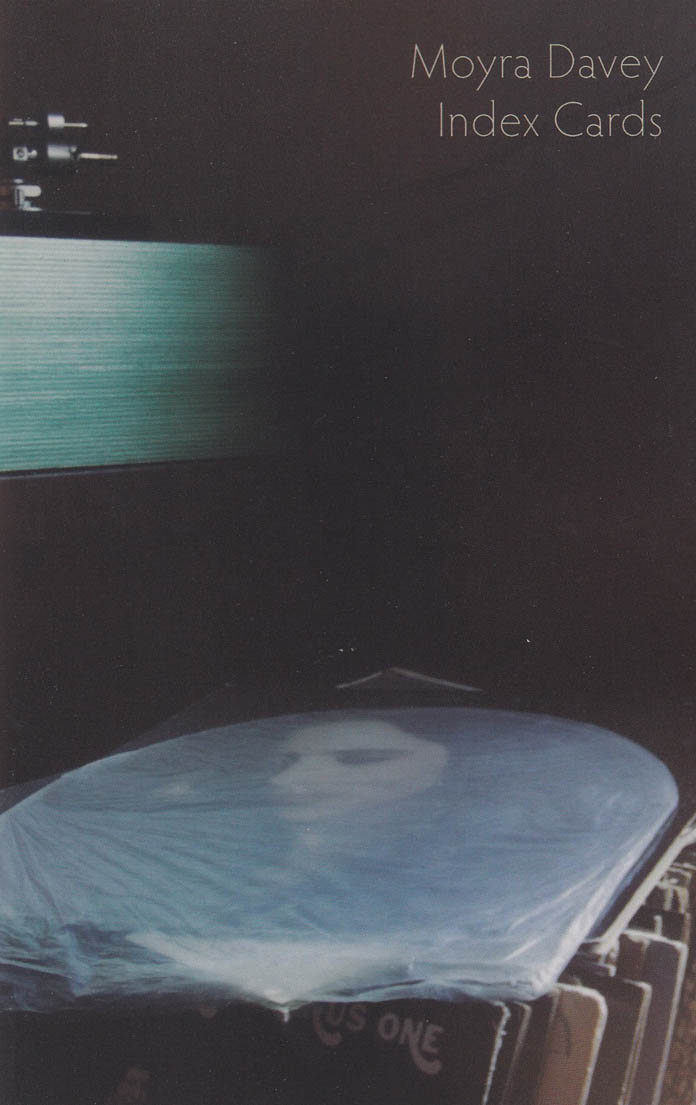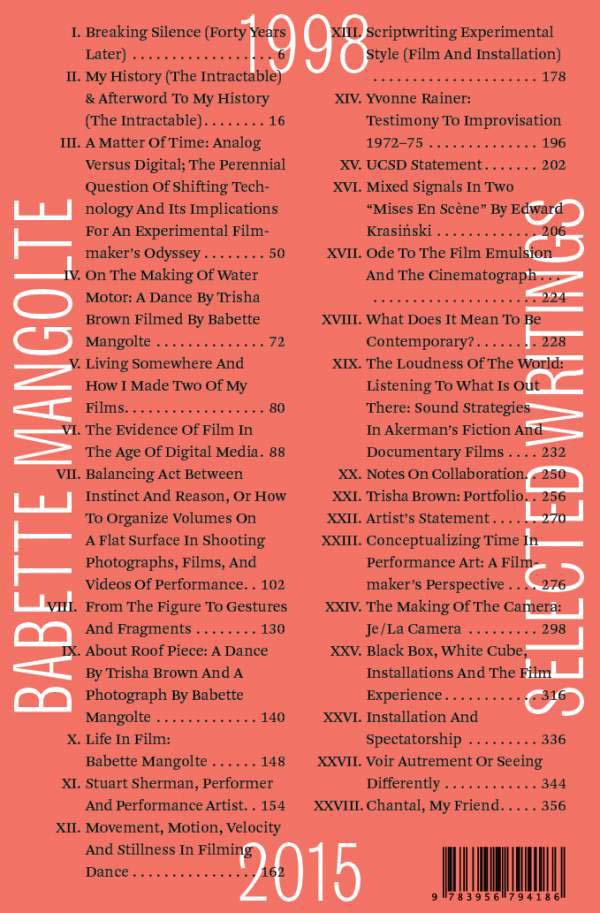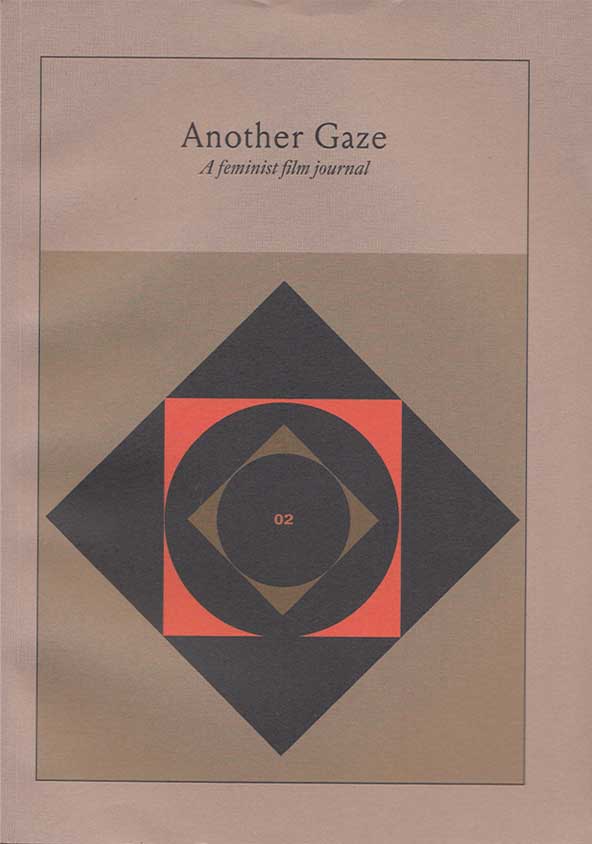Chantal Akerman
Chantal Akerman

My Mother Laughs
First published in France in 2013, My Mother Laughs is the final book written by the legendary and beloved Belgian artist and director Chantal Akerman (1950-2015) before her death. A moving and unforgettable memoir, the book delves deeply into one of the central themes and focuses of Akerman's often autobiographical films: her mother, who was the direct subject of her final film No Home Movie (2015).
With a particular focus on the difficulties Akerman faced in conjunction with the end of her mother's life, the book combines a matter-of-fact writing style with family photographs and stills from her own films in order to better convey the totality of her experience. Akerman writes: With pride because I finally believed in my ability to say something that I'd had trouble saying. I told myself, I am strong for once, I speak. I tell the truth.
Chantal Akerman (1950-2015) was a Belgian film director, screenwriter, artist and professor. She is best known for her film Jeanne Dielman, 23 quai du Commerce, 1080 Bruxelles (1975), which was dubbed a masterpiece by the New York Times. During her 42 years of active filmmaking, Akerman's influence on queer, feminist and avant-garde cinema remains unmatched, her films highlighting a near-physical passage of time. Akerman's films have been shown at the Venice Film Festival, Cannes Film Festival and the New York Film Festival, among many others.
Translated by Corina Copp.
Published June 2019.

A Family in Brussels
Filmmaker Chantal Akerman presents A Family in Brussels, a fictional stream-of-consciousness text encompassing multiple subjectivities and laced with autobiographical references. This is the first English-language publication of the work, which Akerman wrote and first performed as a monologue in Paris and Brussels. The accompanying recording documents the theatrical reading that took place at the Dia Center for the Arts, New York, in October 2001. The listener can hear Akerman's singular voice as she muses on familial relations, communication, closeness, and distance.

My Mother Laughs (UK Edition)
In 2013, the filmmaker Chantal Akerman's mother was dying. She flew back from New York to Brussels to care for her, and between dressing her, feeding her and putting her to bed, she wrote. She wrote about her childhood, the escape her mother made from Auschwitz but didn't talk about, the difficulty of loving her girlfriend, C., her fear of what she would do when her mother did die. Among these imperfectly perfect fragments of writing about her life, she placed stills from her films. My Mother Laughs is both the distillation of the themes Akerman pursued throughout her creative life, and a version of the simplest and most complicated love story of all: that between a mother and a daughter.
Translated by Daniella Shreir with an introduction by Eileen Myles and afterword by Frances Morgan.
And more

Fidback, Revue de cinéma n° 01
Le numéro 1 de la revue de cinéma Fidback éditée par le FIDMarseille, avec un retour sur la 35e édition du festival, un regard rétrospectif sur des films qui ont fait l'actualité mondiale du cinéma en 2024, une carte blanche à Clara Schulmann, et un portrait de l'artiste et cinéaste Declan Clarke par Alice Leroy.
Retour sur six films issus de la sélection officielle du FID, par des auteurs, critiques et écrivains de langues française et étrangères. Les textes critiques sont accompagnés d'entretiens, de documents ou de matériaux inédits. De Amsevrid, premier film magistral du cinéaste algérien Tahar Kessi, jusqu'au Tríptico de Mondongo du maestro argentin Mariano Llinás, ce bouquet de films est un condensé de l'édition 2024 du festival – une poignée de films parmi tous ceux qui auraient mérité le retour.
Le choix des huit films sur lesquels nous avons invité des auteurs et autrices à poser leur regard est en soi un geste critique. Il nous a semblé que les derniers films d'Albert Serra, Miguel Gomes, Alain Guiraudie, Jia Zhangke et Victor Iriarte méritaient plus que d'autres l'inscription dans le temps long de la revue. Films restaurés, écrits édités, rétrospective et exposition au Jeu de Paume : Chantal Akerman fut pour beaucoup, cette année, une révélation. Naked Acts, le film ressuscité de Bridgett Davis, aura marqué ceux qui ont eu la chance de le voir.
Pour sa carte blanche, Clara Schulmann a choisi le film Lucciole (2021), de Pauline Curnier Jardin. Mais son texte porte au-delà de l'œuvre, il déplace le geste critique en un récit spéculatif sur la manière dont une vie et un travail se tissent sur une trame faite de lieux, d'histoires, de personnes.
Alice Leroy est la première à faire le portrait de l'artiste et cinéaste irlandais et berlinois Declan Clarke : à prendre la mesure, à tracer les perspectives d'une œuvre majeure, bien qu'encore méconnue, du cinéma d'aujourd'hui.
Fidback est une revue de cinéma éditée par le FIDMarseille. Chaque année, elle dessine une image-constellation du cinéma aimé et défendu par le festival.

La Captive
In the fifth published title of the Decadent Editions series, Christine Smallwood explores Chantal Akerman’s adaptation of Marcel Proust’s The Prisoner, the fifth volume of In Search of Lost Time, in a text that moves elegantly between Akerman’s films, Proust’s novel, and Smallwood’s own life.

GLEAN - Issue 5 (NL edition)
De vijde Nederlandstalige GLEAN editie.
Bijdrages over Chantal Akerman, Biënnale van Venetië, Eline de Clercq, Samah Hijawi, Laure Prouvost, Anastasia Bay, Wim Delvoye, Riar Rizaldi, Haegue Yang, Nil Yalter, Anna Maria Mariolino.

Love Is Colder Than the Lake
Searing in its energies and mysterious in its icy depths, Love is Colder than the Lake is a tour-de-force of the experimental French poet Liliane Giraudon's power and range.
Love is Colder than the Lake weaves together stories dreamed and experienced, fragments of autobiographical trauma, and scraps of political and sexual violence to create an alchemical and incantatory texture that is all Giraudon's own. In its feminist attention and allusive stylistic registers, Love is Colder than The Lake claims a unique position among contemporary French literature. The heroes (or anti-heroes) in this collection include Rainer Werner Fassbinder, Lorine Niedecker, Emma Goldman, Chantal Akerman, the Marquis de Sade, and the unnamed lake itself. Giraudon's writing, editing, and visual work have been influential in France for decades, and English-speaking readers will thrill to this challenging, important voice.
Liliane Giraudon was born in Marseille in 1946. She continues to live and work in Marseille, and her writing is inseparable from the place, shaped by the vibrant community of poets and writers and artists Giraudon has herself shaped, as well as by the city's gritty and diverse cosmopolitanism. Giraudon's many books have, since 1982, been primarily published by France's P.O.L. editions. Giraudon has also been instrumental as an editor for influential reviews such as Banana Split, Action Poétique, and If. She performs and collaborates widely, including with Nanni Balastrini, Henri Delui, Jean-Jacques Viton, and many others. Two of her books ( Fur and Pallaksh, Pallaksh) were published in English by Sun & Moon Press in 1992 and 1994, respectively. She lives in Marseille, France.
Lindsay Turner is the author of the poetry collections Songs & Ballads (Prelude Books, 2018) and The Upstate (University of Chicago Press, 2023). She has twice received French Voices awards for her translations from the French, which include books of poetry and philosophy by Stéphane Bouquet, Souleymane Bachir Diagne, Anne Duforumantelle, Ryoko Sekiguchi, and others. She is Assistant Professor of English and Creative Writing at Case Western Reserve University in Cleveland, Ohio.
Sarah Riggs is a poet and multivalent artist. Her most recent book The Nerve Epistle appeared in 2021. Translation is one of her arts, for which she received a Griffin prize with Etel Adnan, and Best Translated Book Award, also for Adnan's Time (Nightboat, 2019). Riggs lives in Brooklyn, after many years in Paris. Author residence: Marseille, France.

Letters from NYC
A diptych of transcribed letters, extracted from two films taking place in 1970s New York, made by Jacques Scandelari and Chantal Akerman.

Drifts (paperback)
Haunting and compulsively readable, Drifts is an intimate portrait of reading, writing, and creative obsession. At work on a novel that is overdue, spending long days walking neighborhood streets with her restless terrier, corresponding ardently with fellow writers, the narrator grows obsessed with the challenge of writing the present tense, of capturing time itself. Entranced by the work of Rainer Maria Rilke, Albrecht Dürer, Chantal Akerman, and others, she photographs the residents and strays of her neighborhood, haunts bookstores and galleries, and records her thoughts in a yellow notebook that soon subsumes her work on the novel. As winter closes in, a series of disturbances—the appearances and disappearances of enigmatic figures, the burglary of her apartment—leaves her distracted and uncertain . . . until an intense and tender disruption changes everything.
A story of artistic ambition, personal crisis, and the possibilities and failures of literature, Drifts is the work of an exhilarating and vital writer.
Kate Zambreno is the author of several acclaimed books including Screen Tests, Heroines, and Green Girl. Her writing has appeared in The Paris Review, VQR, and elsewhere. She teaches in the writing programs at Columbia University and Sarah Lawrence College.
Published 2021

Another Gaze Journal 04
Including essays about Madeline Anderson, Lorenza Mazzetti, Laure Prouvost, Ben Rivers & Anocha Suwichakornpong, Agnieszka Holland’s Spoor, Susan Sontag’s filmmaking career, Storm De Hirsch, Zia Anger, Ashley Connor, Bruce LaBruce, Pina Bausch/Chantal Akerman, Magdalena Montezuma, Rebecca Horn, Anne Charlotte Robertson, Zhu Shengze, Beatriz Santiago Muñoz, Maya Da-Rin, Camila Freitas, Gong Li
An in-depth Afro-Brazilian roundtable with Tatiana Carvalho Costa, Janaina Oliveira, Everlane Moraes and Kênia Freitas; sections on Kira Muratova and Anne Charlotte Robertson; essays on subtitles, diffractive cinemas, ecocriticism/the anthropocene, literary adaptations, intimacy coordinators, strike on film, representing the internet,
Interviews with Betzy Bromberg, Zia Anger & Ashley Connor, Brett Story, Amandine Gay, Andrea Luka Zimmerman & Therese Henningsen
Experimental criticism from Kathryn Scanlan, Jen Calleja and Elissa Suh.

Index Cards: Selected Essays
In these essays, the acclaimed artist, photographer, writer, and filmmaker Moyra Davey often begins with a daily encounter, with a photograph, a memory, or a passage from a book, and links that subject to others, drawing fascinating and unlikely connections, until you can almost feel the texture of her thinking.
While thinking and writing, she weaves together disparate writers and artists, Mary Wollstonecraft, Jean Genet, Virginia Woolf, Janet Malcolm, Chantal Akerman, and Roland Barthes, among many others, in a way that is both elliptical and direct, clearheaded and personal, prismatic and self-examining, layering narratives to reveal the thorny but nourishing relationship between art and life.
Published May 2020.

Selected Writings, 1998–2015
A single black-and white photograph taken by Babette Mangolte has come to epitomize New York’s downtown art scene of the 1970s. The dancers performing Trisha Brown’s Roof Piece characterize perfectly the wild spirit of the time. Choreographed as an echo of movement unfolding across SoHo’s rooftops, the dancers mimed the chimneys, water towers, and fire escapes which surrounded them across that skyline. Influenced early on by Dziga Vertov’s Man with a Movie Camera and the work of Stan Brakhage and Jonas Mekas, Mangolte began studies in 1964 at the renowned École nationale de la photographie et de la cinematographie in Paris, one of the school’s first female students. In 1970, having become disillusioned with the film scene in France, Mangolte moved to New York and became involved in the avant-garde film and dance milieus of the Kitchen and the Anthology Film Archives.
Selected Writings, 1998–2015 is a collection of texts by Mangolte in which she reflects on her practice as a photographer and filmmaker and her collaborative work with filmmakers, artists, dancers, and choreographers. She provides insights into the techniques and methods she created as well as her relationships with notable collaborators such as Marina Abramović, Chantal Akerman, Trisha Brown, and Yvonne Rainer.
Copublished with Kunsthalle Wien on the occasion of the exhibition “Babette Mangolte: I = Eye.”

Chantal Akerman Retrospective Handbook
A book from A Nos Amours gathering up all the research and writing that went into making the London Chantal Akerman retrospective possible.
Between 2013 and 2015, A Nos Amours presented in London a complete retrospective of the films of the celebrated film-maker Chantal Akerman. This was a complex and demanding project as rights and screening copies turned out to be widely scattered and difficult to access. The research needed to present this retrospective is offered in this book so that others may easily follow suit.
Also included are the texts, journalism and blogging that was offered to the audience as a means to engage with film-works that are at once radical, heterodox and, in many cases, little known. The book aims to be accurate and a reliable source of detailed information about the films.
Texts are included that provide invaluable insight, including by:
Raymond Bellour, Richard Brody, Ivone Margulies, Marion Schmid and Ginette Vincendeau.
Laura Mulvey has written an expansive foreword, surveying Akerman's achievement, making use of the book as an aide-mémoire for what stands as one of the astonishing bodies of work in all cinema:
"As a collage of writing of many different kinds, the Handbook crucially bears witness to the effect that Akerman has had on the film community, from her earliest movies until her last... The high quality of the texts included in the book are all a reminder of the way that her ‘cinematic’ qualities have advanced our understanding of film." (Laura Mulvey preface)

Another Gaze Journal 02
Including essays about Lucrecia Martel, Alice Rohrwacher, Cecilia Mangini, Chantal Akerman, Mika Rottenberg, Anocha Suwichakornpong, Agnès Varda, Barbara Hammer, Laida Lertxundi.

Another Gaze Journal 01
The first issue contains interviews with women including Carolee Schneemann, Mania Akbari, Laura Mulvey, Alice Diop, Bette Gordon, and Lis Rhodes. It contains pieces on the films of women including Kathleen Collins, Sally Potter, Chantal Akerman, Moyra Davey, Camille Henrot, Naomi Kawase, Germaine Dulac, Alice Guy-Blaché.